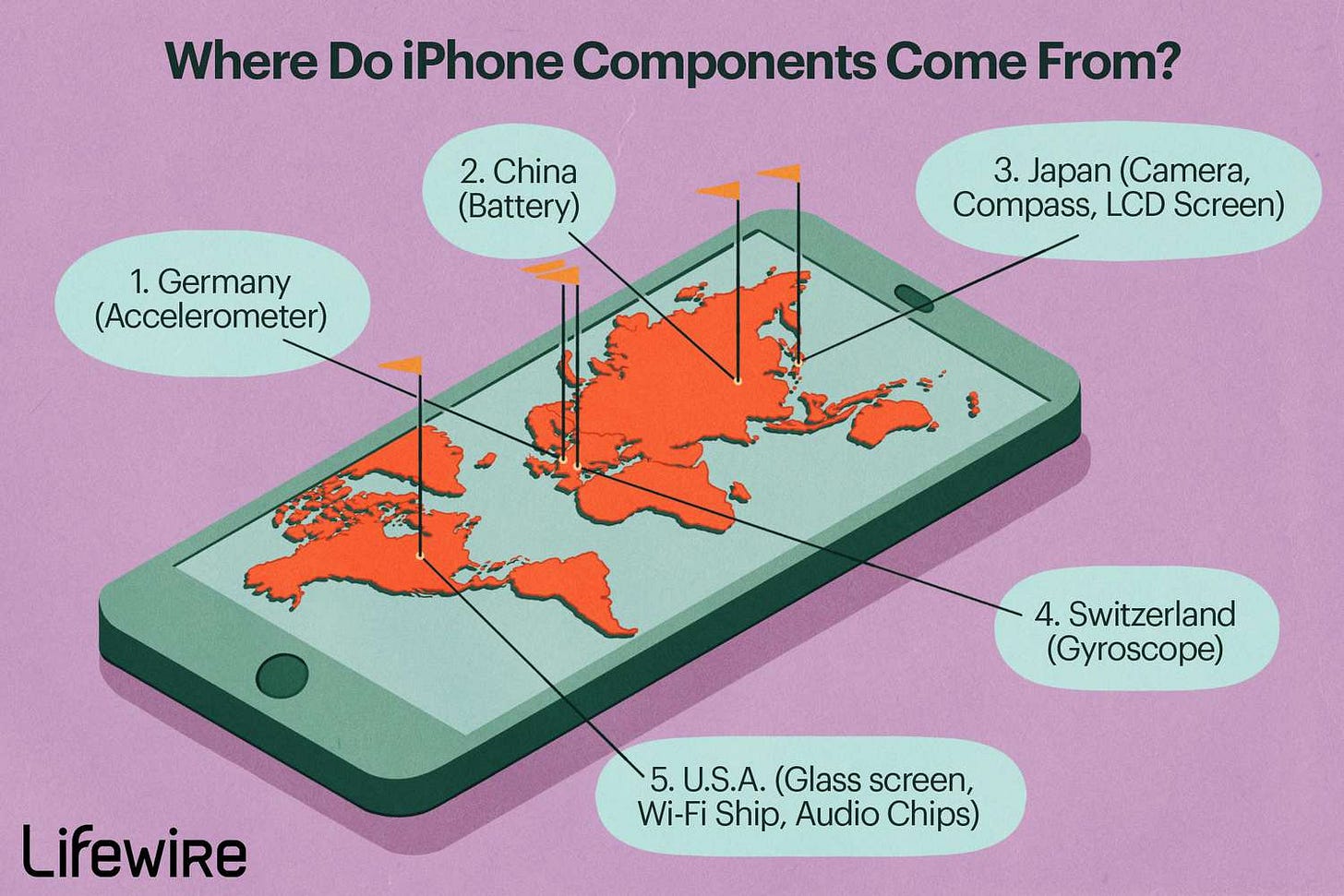You might have been too busy raising your family and earning a living to notice: Liberation Day came last week. Despite months of speculation that President Trump was bluffing, he made good on a major campaign promise, imposing import tariffs on imports from pretty much everyone. Some are steep, and the way they were calculated makes it clear the administration isn’t worried about public opinion. Nor those of American allies.
I read and listened to many takes, and I gotta say—everyone's theory about what happens next sounds plausible. I’m not an economist, but as one commentator put it, “Somehow, everyone is confident.” Economics, after all, is not an exact science. It’s not really a science at all, since human behavior tends to wreck even the best-laid models. So despite the confidence from both fans and critics, I suspect no one really knows how this will shake out.
What we do know so far doesn't need speculation:
The markets had a rough time.
Trading partners reacted in all directions.
Some negotiated for carve-outs.
Some ramped up tariffs of their own—China included.
It was a wild week.
The debate so far:
Critics say Trump is undoing free trade.
Supporters say we haven’t had “free” trade in decades due to finagling by governments.
Critics warn the uncertainty will damage financial markets.
Supporters say, “The stock market isn’t the economy”—but then again, pensions and bank investments live there, too.
Critics warn of rising prices for cheap goods.
Supporters shrug: “Do you really need another iPhone?”
Trump backers argue he’s ending a trade war, not starting one—taking money from global elites and giving it back to American workers. Social media dared to dream of one-income households and made-in-America pride. But an honest question: do Americans actually want to work in factories again? And are we willing to pay more for “American-made” products until some equilibrium is achieved—whatever that means in today’s global supply chain?
For example:
The oft-cogent libertarian Senator Rand Paul weighed in, arguing tariffs are essentially a tax. “No taxation without representation” means Congress—not the executive—should be in the driver’s seat. That line of argument is likely to show up in court soon.
More upheaval.
Could this chaos lead to renewal? Could this crazy-like-a-fox President shake things up enough to usher in a more secure and self-sustaining era—for us and maybe even for the world? If the critics are right, Americans may have to slow down, settle for less variety, eat in season, and save up for that US-made car. Maybe we’ll all rediscover contentment. Maybe nations will bring their best to the global table, finally playing fair. But are we ready for that kind of simplicity? Or have we grown too soft, too spoiled, too enlightened?
Abe Greenwald, no fan of tariffs, says we’ve become numb to shocks:
“Americans have become so oriented to disorientation that nothing stirs genuine astonishment, let alone awe, in us… once you’ve gone through the looking glass and lived in Wonderland for a few years, Wonderland becomes just another place…If you're someone who wants to reshape the world, this is the time to act. Reality has never been more malleable.”
He’s not wrong. After the century began with 9/11, we’ve had Trump, COVID, George Floyd and Biden’s obvious decline… nothing surprises us anymore. We distrust everything: media, government, even each other. The idea that something massive is needed to change anything is definitely in the air. Matt Welch described this chaos as the US “Brexiting” itself from a world it created. Megyn Kelly captured a common sentiment: “We’ve tried what the experts said for years. They were wrong. Let’s see how this goes.”
It is fair to say, President Trump has invested a lot of political capital in this longtime dream to shake up the global economy. Whether it pays off before the backlash overtakes him—no one knows. I certainly don’t. Whether this leads to boom or bust, pain or peace, I know faithful saints are already grounded in God’s reality, despite the upheaval; embracing simple and real things like church, family and community, stewarding the creation as we have opportunity. That’s why we are here. Moreover, the Bible tells us there is One who does know the future, nothing catches Him off guard. Even economic revolutions are under His rule. So watch, pray, and don’t panic. The future isn’t in the hands of Wall Street, Beijing, or even the White House. It’s in better hands.







24 And when they were come to Capernaum, they that received tribute money came to Peter, and said, Doth not your master pay tribute?
25 He saith, Yes. And when he was come into the house, Jesus prevented him, saying, What thinkest thou, Simon? of whom do the kings of the earth take custom or tribute? of their own children, or of strangers?
26 Peter saith unto him, Of strangers. Jesus saith unto him, Then are the children free.
27 Notwithstanding, lest we should offend them, go thou to the sea, and cast an hook, and take up the fish that first cometh up; and when thou hast opened his mouth, thou shalt find a piece of money: that take, and give unto them for me and thee.
Matthew 17:24-27